9+ Sample Executive Coaching Proposals
-
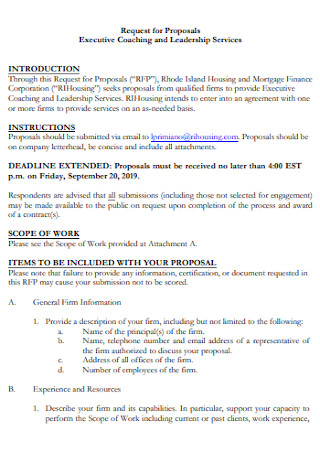
Executive Coaching and Leadership Proposal
download now -
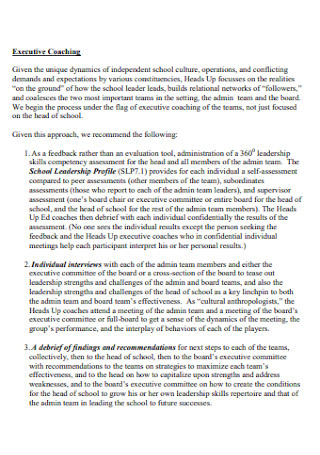
Sample Executive Caching Proposal
download now -
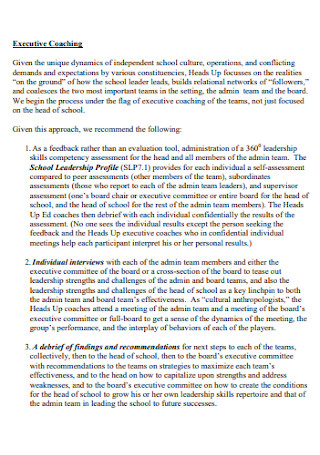
Executive Coaching Proposal Format
download now -
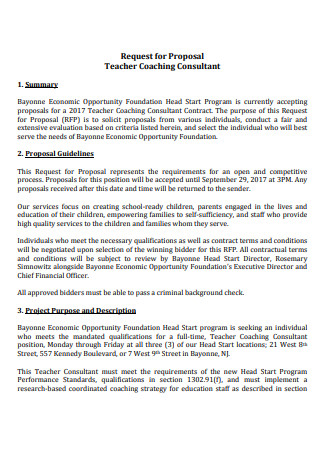
Teacher Executive Coaching Consultant Proposal
download now -
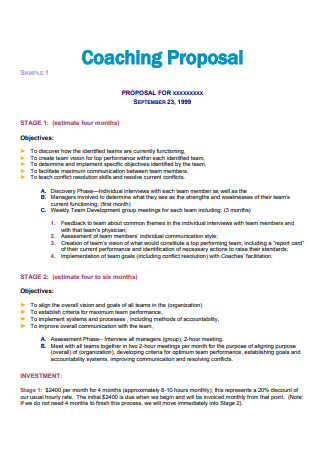
Basic Executive Coaching Proposal
download now -
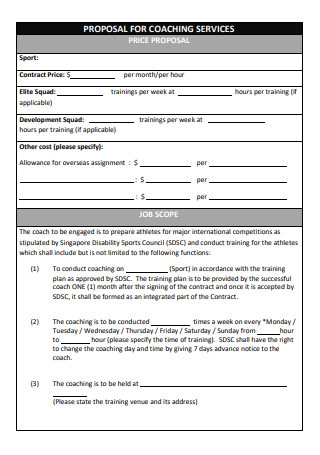
Executive Coaching Services Proposal
download now -
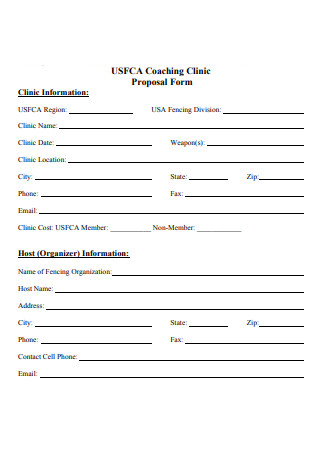
Executive Coaching Clinic Proposal
download now -
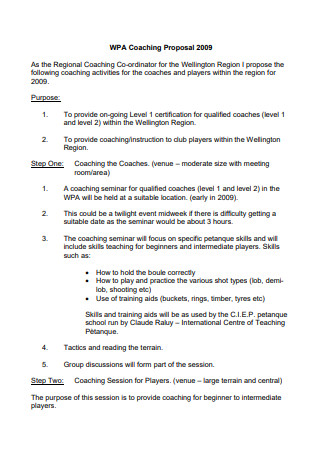
Executive Coaching Proposal Example
download now -
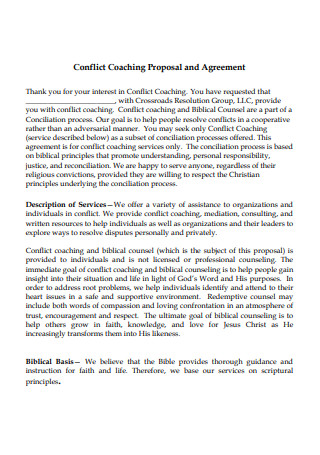
Executive Coaching Proposal and Agreement
download now
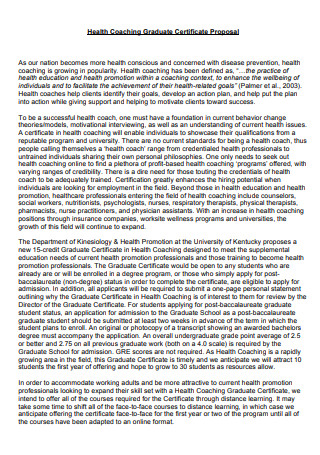
Health Executive Coaching Graduate Proposal
download now[/ns_li]FREE Executive Coaching Proposal s to Download
9+ Sample Executive Coaching Proposals
What Is Executive Coaching?
Benefits of Executive Coaching
Characteristics of the Top Executive Coaches
How to Become an Executive Coach
FAQs
What is the difference between coaching and executive coaching?
Are executive coaches worth it?
What distinguishes a life coach from an executive coach?
What Is Executive Coaching?
A series of one-on-one contacts between a manager or executive and an external coach constitute executive coaching. Coaching empowers individuals with the knowledge and chances they need to grow and become more effective. Behavior change is the primary objective of the majority of executive coaching programs. A qualified executive coach assists individuals in gaining self-awareness, defining goals, achieving their development objectives, unlocking their potential, and serving as a sounding board. They typically refrain from providing advice or resolving their customers’ issues, as they are neither consultants nor therapists. Instead, they ask executives clarifying and problem-solving questions. According to a study by Metrix Global, executive coaching has a return on investment (ROI) of 788 percent due to productivity gains and staff retention.
Benefits of Executive Coaching
The benefits of executive coaching extend beyond leaders’ personal growth. Although every effective leader strives to improve himself and their abilities, the majority choose executive coaching since it strengthens their businesses over time. Professional executive coaching provides far-reaching benefits that help every individual in a firm, from executives to entry-level workers. When leaders improve and grow, their organizations typically do so as well. Developing, honing, and enhancing leadership qualities is not only for career advancement. It entails providing a company with the leadership it needs to expand in all areas. We have witnessed the positive effects of executive coaching on both large and local scales, and it is evident that leadership and corporate success are intrinsically linked. Let’s examine why executive coaching is essential for executives and firms.
Characteristics of the Top Executive Coaches
Executive coaching is a potent instrument that leaders can use to enhance their performance by exploring possibilities that can force them to leave their comfort zone. In recent years, executive coaching has become increasingly important in the organizational environment as leaders have realized that their leadership style directly impacts the company’s performance. Given the substantial budget report required for executive coaching, these leaders must choose their coaches carefully. If you like to be one of the top executive coaches, there are five qualities you must cultivate.
1. Expertise
Expertise is crucial because executives are frequently extremely busy and need more time to describe their difficulties. They rarely discuss the organizational challenges they face in their position. As a coach, you guide them so they can attain their objectives. To accomplish this, substantial experience in this industry is unquestionably advantageous. Therefore, you must comprehend the many challenges and goals of the individual you are coaching. And via your own similar experiences, you will be able to demonstrate to the executive that they are not alone in this situation or that there is a better alternative.
2. Listening
An excellent executive coach knows how to listen to someone without interrupting them so they can understand the situation and act the right way. To avoid coaching mistakes, they need to see things from an objective point of view. It’s essential to look at the whole situation. Active listening helps you understand half-baked ideas and ideas that aren’t well-expressed so you can rewrite them in a way that makes sense. So, to be one of the best executive coaches, you should learn to listen very well.
3. Emotional Intelligence
Because mutual respect is the foundation of a strong relationship, the essential part of emotional intelligence is putting yourself in the executive’s shoes. For the coaching to work, the executive needs to feel like they can tell you anything without fear of being judged and that you can help them. On the other hand, it is fascinating to note that most executives think dealing with other people is the hardest part of their job. With the emotional intelligence you’ve gained through experience, you’ll be able to give the client better advice on how to get along with their coworkers in a healthy way.
4. Professionalism
Most professional executive coaches are competent and dependable in their line of work. Training and experience are how all skills are acquired. Along with professionalism, dependability is a personal characteristic you should cultivate. This includes keeping your word and having moral character. Saying one thing and accomplishing another can negatively alter your image and cause you to lose the executives’ trust. Today, this quality is required to stand out in the coaching industry.
5. Good Communication
An excellent executive coach will speak up when something isn’t going well. If the executive makes mistakes, you must reaffirm that you are coaching the correct approach. Empathy is required to craft a message correctly. Since coaching is not meant to cause harm to the person you are working with, it enables you to comprehend their needs and feelings.
How to Become an Executive Coach
Are you qualified to become an executive coach? Those executives and business owners who are proactive in their pursuit of external perspectives are the ones who can propel their businesses to new heights of success. The insights supplied by an experienced mentor can assist a chief executive officer in identifying blind spots, gaining a fresh perspective on their most significant commercial difficulties, and developing the more individual components of their leadership style. If you are a seasoned executive contemplating your next career move, the following six-point checklist will help determine if you have the qualifications to become an executive coach.
1. You know the basics of running a business.
An executive coach should have been an administrator with profit-and-loss responsibilities. It is advantageous for them to have held that position to empathize with the CEO when they are challenging them or when the CEO is experiencing difficulties. The CEO or business owner’s coach must have “been there and done that.” As an executive coach, you must avoid becoming a consultant. You may have a great deal of information and expertise. Therefore it can be challenging to refrain from dictating to others. Instead of telling them what to do, the role of a coach is to ask them questions that enable them to find their solutions.
2. You ask insightful questions and are an attentive listener.
You must be someone who does not need to speak constantly and can refrain from outdoing others. There are numerous books on how to ask excellent questions. Coaching will be challenging for you if you are not genuinely curious and an active listener. You must ask questions to hear the response, not to formulate the next best question or a solution, but to listen actively. If you have expertise in a particular business area and your CEO seeks your advice, you could respond, “If it were me, I might do this.” Or, you could provide the CEO with several options to consider. Most of the time, you merely guide them to their conclusion by asking questions. This is the correct strategy because they must own the solution. They should succeed or fail on their own accord with the assistance of their coach.
3. You can assist a CEO in envisioning and establishing future objectives.
The key is to assist business leaders in achieving their objectives and moving in the desired direction. As an executive coach, it is my responsibility to help a CEO articulate their vision and goals and recognize aspects of their business and leadership that they cannot see for themselves. A coach acts as the devil’s advocate when defining the vision and then holds the leader accountable for implementing strategies to move closer to the idea.
4. You can recognize a leader’s strengths and development opportunities.
A coach for executives should be able to identify each CEO’s strengths and areas for improvement. For example, I coach a high-performing CEO and a low-performing CEO. There is a distinction between the two, and I must meet each of them where they are to help them develop the skills they need to move in the desired direction. As an executive coach, it is essential to conduct a leadership assessment and create a development plan based on the gathered data and the CEO’s desired outcomes.
5. A CEO can be challenged and held accountable.
There are going to be difficult conversations. These conversations take place in a safe and private environment, and while they may be uncomfortable, they are necessary. An effective executive coach will challenge a CEO, possibly to the point where the CEO feels uneasy. If difficult conversations do not occur, there will be no learning or transformation, and the CEO will be unable to solve the issue. An executive coach is there to encourage leaders to be their best.
6. You are willing to assist CEOs during challenging times.
My objective is for the people I coach to remember me as the person who challenged them to make the changes necessary to become a more decisive leader who eventually achieves better company and individual results. As a coach, you frequently have tough personal conversations, and it is crucial to me that my clients know they can rely on me at all hours. A competent coach offers this support. You do whatever it takes, and you are the person people call in a crisis or when they need assistance solving an issue.
FAQs
What is the difference between coaching and executive coaching?
Executive coaches offer solutions and advice for each person, not the whole organization. Executive coaching improves business results by bringing out the best in each person. Business coaching sets the best conditions for each person’s performance to shine.
Are executive coaches worth it?
Considering all this, a person may value a coach to increase self-awareness to identify their true desires. Improve their work performance and become more effective leaders. Increase their self-assurance and silence their self-doubt.
What distinguishes a life coach from an executive coach?
Life coaching focuses primarily on who you are and how that identity influences your actions and outcomes. Executive coaching focuses primarily on what you do and what you have, with a secondary emphasis on who you are, while analyzing what you did/did not do to achieve the current results.
Creating a proposal while planning out the desired goals or objectives, the actions involved, and the traits that need to be produced is a challenging task. Consequently, it is strongly recommended that you utilize our website’s available, pre-made, and editable templates to create the finest output possible!
